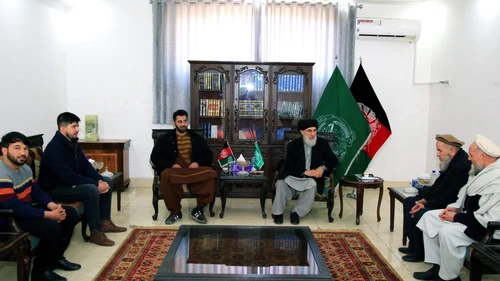Ahmad Wali Rashidi was five-year-old when he lost his left leg to a rocket attack on his house in Kabul. “I remember hearing a zooming sound, Rashidi,now 29, told VICE World News.“When I turned my head, I saw a green metal tube and then everything went black.”
In 1995 the civil war in Afghanistan was at its peak. Rashidi’s neighbourhood had come under attack from Gulbuddin Hekmatyar, one of the mujahideen leaders vying for control of Kabul after the withdrawal of the Soviet forces in 1989. Hekmatyar’s indiscriminate bombing of the Afghan capital had earned him the title the “Butcher of Kabul.”
Over the subsequentyear, Rashidi’s father and brother were both killed by rockets that he believes were fired byHekmatyar’s militant group, Hizb-e-Islami.
The trauma of violence never left him, says Rashidi, who was in pain for years until he travelled to Germany for treatment with the help of a nonprofit and finally granted asylum in Denmark. He grew up there from the age of 10 and found it hard to move past his memories and his hate.
One particularly recurrent memory was of his grandmother who used to pacify him during bombings. “We would run to the basement. ‘Oh, it’s just a party happening upstairs’, she would say to distract us,” said Rashidi.
In 2016 when the Afghan government was negotiating a peace deal with Hekmatyar to end the decades-long impasse, it refreshed Rashidi’s memories of the man.“His face was all over the news,” Rashidi said. This time, Rashidi knew he had to meet this guy. “I wanted to look him in eye and let him know how he hurt me, but also I wanted to forgive him.”
Read full story on Vice
